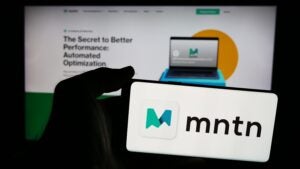 Apple is laying down the law for app developers through a set of new rules, which are slated to take effect in conjunction with its long-awaited iPhone release on Monday.
Apple is laying down the law for app developers through a set of new rules, which are slated to take effect in conjunction with its long-awaited iPhone release on Monday.
Apple’s alterations restrict developers’ access to data from HealthKit, its factory-installed fitness monitoring app, and third-party app extensions. The new stipulations will likely apply to the next-generation iPhone, in addition to the first-generation “iWatch,” as the company’s anticipated wearable device is being called by observers.
Updates to Apple’s app store guidelines state: “Apps may not use user data gathered from the HealthKit API for advertising or other use-based data mining purposes other than improving health, medical, and fitness management, or for the purpose of medical research.”
Gearing up for next week’s product release, AdExchanger asked executives from Wunderman, Hill Holiday, ID Health and McCann Health to respond to Apple’s pivot and to posit on the implications for the advertising industry.
Click below to read their responses:
Becky Chidester, president, Wunderman World Health
“Apple’s decision to prevent developers from selling health data is a sound one as use of data for health care is a highly sensitive area. But beyond the letter of the law, it is also wise because in a technology-driven and data-driven age, consumers must be able to trust the brands they do business with. A brand’s respect for consumer privacy as well as data security enhances the brand relationship and helps win loyal customers. This is a new and emerging area that is bringing with it a healthy debate.”
Noah King, VP, senior social media strategist, Hill Holiday
“While the HealthKit platform has the potential to help prevent, diagnose and treat diseases, this move transitions Apple from an expert in the technology domain to a startup in the healthcare domain. Unlike other categories that Apple has disrupted, the platform and its apps will be subject to FDA approval, a regulatory agency known for being vague with rule definition and strict with rule enforcement.
The news that Apple has modified its API to block access to personal health data is not surprising, as personal health data has always been under strict lock and key to ensure HIPAA compliance. We expect even more news of platform restrictions as Apple is forced to accommodate feedback and warnings from the FDA. The biggest implication for the ad world is that investing in HealthKit will be about as risky as investing in a fledgling startup. Before considering monetization options like advertising, Apple’s biggest challenge will be to drive user adoption, proving that this idea is scalable and sustainable. And until the user base is established, advertisers won’t have an audience to reach.”
Michael Maher, president, ID Health
“Apple’s idea of a hub for all health-related data is a powerful offering, since most health data today is partitioned among many devices, apps and sources. The promise of integrating this disparate data potentially provides enormous value to consumers, who will get a far more complete picture of their personal health status and activity. Apple is reportedly partnering with some of the leading players in health and fitness, including Nike, Mayo Clinic and a leading health insurance provider.
However, this data would seldom be a complete picture of someone’s individual health, so it would be best used for specific health-monitoring and activity-tracking purposes. For marketers and advertisers, if this data was available through a privacy-protected, non-personally identifiable approach, it would provide the kind of efficient, relevant targeting not currently available, offering consumers compelling value to address their specific health conditions and fitness needs.
Consumers must be given the confidence that their personal health data will be kept private, or they will not use these apps, as no one wants specific personal information like heart rate, diet, exercise, activity logs and sleep patterns to be freely available without any controls. Apple’s restrictions indicate that the data cannot be resold to ad platforms, data brokers or information resellers, and specifies that any data sharing can occur only when designed to provide health or fitness services or when consumers willfully opt in.
While marketers and advertisers were not counting on this as the next great opportunity in data targeting, there would be a significant opportunity to leverage data that is aggregated, and not personally identifiable, to provide relevant products and value to segments with specific health and fitness interests or needs. Thus, marketers may want to collaborate with app developers to prioritize requesting or incentivizing opt-in permission to make this data available and usable.”
“Apple has prohibited developers from selling any personal information garnered from customers on their health apps to advertisers. This change in policy may allay fears around privacy as Apple starts to move into the health data business, while also increasing trust in HealthKit in the run up to the release of iOS 8 later this month.
Of course, developers can share data with third parties for “medical research purposes,” but only if they get a user’s permission. In due time, I do believe their policies will change, especially as Google, Samsung, and others prepare to roll out similar platforms. But for now, Apple’s HealthKit will take aim at collecting data that allows users to become healthier. While there is certainly value in this data to marketers and advertisers, the goal for now will be better health outcomes, not better sales.”













